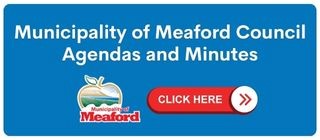Stephen Vance, Editor
 Every important initiative needs champions, and champions of important initiatives are certainly worthy of recognition, so I was pleased when council recently adopted the Accessibility Recognition Program.
Every important initiative needs champions, and champions of important initiatives are certainly worthy of recognition, so I was pleased when council recently adopted the Accessibility Recognition Program.
Accessibility has always been important, but it hasn’t always been valued and it hasn’t always been a priority. Only in recent history have governments placed proper emphasis on ensuring that those with physical disabilities have as equal access as is possible to structures and services as able-bodied folks, but there’s still a long way to go, and with our ever aging population, it’s becoming more and more important.
If you’re young, and the ravages of old age are still decades in the future, you still aren’t immune to the potential for becoming disabled yourself. Any one of us is just an accident away from having our mobility altered, or from losing our vision, or our hearing. Accessibility is important to everyone, no matter their age or current abilities.
Let’s be honest, most of us don’t truly understand an issue like accessibility until it touches us, or someone close to us. I’m sure that most people born with perfectly good eyes don’t spend much time questioning why there’s no braille on the price tags in the grocery store, or why there’s no audible alerts incorporated into the traffic light systems at many intersections, but if you lost your vision in a workplace accident or some other tragic event, you can bet you’ll quickly realize how inaccessible many public buildings and businesses are for the visually impaired. I know, myself, I never spent much time worrying about whether a business had steps leading to the door, or if there was a ramp of some sort until a few years of excruciating chronic pain thanks to sacroiliac joint dysfunction made even a couple of stairs near impossible much of the time. And, when I was younger and stronger, I also never realized how heavy those glass doors are on many commercial buildings, and who knew that opening heavy doors like that puts a significant amount of stress on your lower back? Well, I’m well aware of facts like that these days.
I heard most of an interesting interview on CBC Radio last week, focused on a man who, after an accident, had become bound to a wheelchair. It was then that the man began to realize how many buildings he couldn’t enter in his wheelchair. Even when he was at work, though the building had a ramp of sorts that could be deployed in order to allow entry into the building, it was bulky and awkward, and required the assistance of at least one other person. The intentions of whoever installed the ramp were most certainly good intentions, but good intentions only get us so far. After experiencing the frustration of not being able to enter stores at which he wanted to shop, thanks to the all-too-common and for disabled folks, the dreaded ‘step up’ into the doorway found on many buildings built before the last 10 or 20 years, he designed and built some ramps and began distributing them to businesses which could use them. He called his initiative ‘Stop Gap’, because though it could solve a problem, it still wasn’t a proper solution.
Addressing accessibility means rethinking how we design buildings, and where we place important services. I doubt for example, that these days, anyone designing the office in which The Meaford Independent resides would put the bathroom in the basement, and there wouldn’t be a step up into the entrance. Trust me, when you can barely walk some days as it is, it can be a loooong (and sometimes nail-biting) journey down all those stairs to get to the toilet.
As a community, Meaford has been doing some good things on the accessibility front. Initiatives like the lowered counter at the Meaford Hall box office (though the bar upstairs is far from accessible for folks in wheelchairs), and the purchase of a Mobi-mat system for the beach at David Johnston Park among many other initiatives are definitely steps in the right direction.
Municipalities have just seven years until provincial accessibility legislation kicks in fully in 2025, and before that happens, Meaford needs to solve its library problem, as with three levels and no elevator, along with narrow aisles and bookcases that are too tall, the current library is far from accessible.
There will be hiccups and frustrations along the way – just last week I read a news story about some signs that had been made for a park in Toronto, and they had accessibility on their minds when they ensured that the text on the signs was duplicated in braille. Sounds perfect, right? Almost. Trouble was, they printed the signs on flat-board, and though you could see the braille, you couldn’t feel it (insert face-palm here). And there will also, without doubt, be costs, and while some might rail against spending all that money to make buildings and services accessible, I suspect they’ll be less angry when they’re in their 70s or 80s and walking with the aid of a cane or a walker.
It can’t just be government buildings, and government literature, and government websites that become accessible, however: private businesses and citizens alike have to follow government’s lead, and as with anything that needs to get done in any community that’s where champions come in.
Anyone that knows me is aware that for the most part I find ‘awards’ to be kind of silly, but that doesn’t mean that I don’t fully support and encourage recognition of those among us who go the extra mile, or who give of themselves to an initiative that benefits the community around them. I can’t think of very many folks that would be more deserving of recognition than those working to make the world around us more accessible and inclusive.









